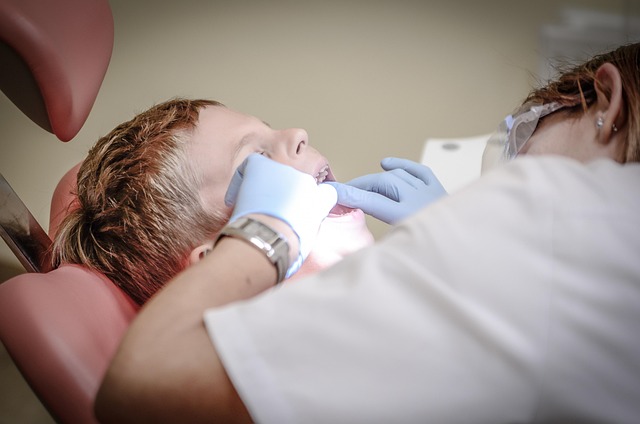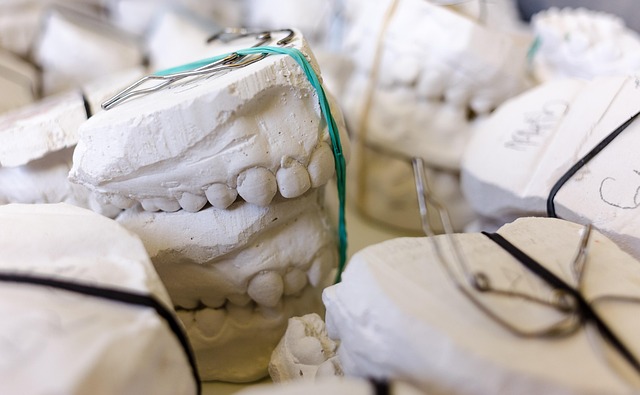Dental practices require specialized coverage due to unique risks like injuries during procedures, potential lawsuits, and costly medical equipment. Standard business insurance doesn't suffice. Customized coverage protects against liability, property damage, employee injuries, and data breaches, offering peace of mind and financial security. In a competitive environment, securing tailored coverage addressing staff liability, malpractice, equipment failure, and regulatory compliance is essential for long-term stability. This involves assessing practice-specific factors like location, size, and service types to uncover potential liabilities. Comprehensive options include professional liability, property, business interruption, and workers' compensation insurance, forming a robust safety net. A successful strategy includes identifying risks, developing custom coverage, crisis management plans, and continuous monitoring, enabling dentists to focus on patient care while mitigating losses.
In the dynamic landscape of healthcare, securing your dental practice with adequate coverage is paramount. Understanding the unique risks associated with dental operations is the first step towards comprehensive risk management. This article explores the significance of customized insurance coverage tailored to meet the specific needs of dental professionals. From assessing practice-specific hazards to implementing a robust risk strategy, discover how the right coverage options can safeguard your practice and ensure its longevity.
- Understanding the Unique Risks of Dental Practices
- The Importance of Customized Insurance Coverage
- Assessing Your Practice's Specific Needs
- Types of Coverage Options for Dental Professionals
- Creating a Comprehensive Risk Management Strategy
- Benefits and Best Practices for Implementing Customized Coverage
Understanding the Unique Risks of Dental Practices

Dental practices face unique risks that require specialized coverage. From accidental injury during procedures to potential lawsuits over patient care, every aspect of a dental office operation must be carefully considered. Unlike general businesses, dental practices deal with intricate medical procedures and costly equipment, making them susceptible to significant financial losses in case of accidents or legal issues.
Customized coverage for dental practices is essential to mitigate these risks. Such coverage not only protects against liability but also includes specific provisions for property damage, employee injuries, and even data breaches, which are increasingly common in the digital age. By understanding and addressing these unique risks, dental practice owners can ensure they are adequately insured, providing peace of mind and financial security.
The Importance of Customized Insurance Coverage

In today’s competitive dental practice landscape, securing comprehensive and customized insurance coverage is no longer an option but a necessity. Each dental clinic operates uniquely, with its own set of risks and opportunities. A one-size-fits-all insurance policy may overlook specific areas of concern for your practice, leaving you vulnerable to significant financial losses in the event of unforeseen circumstances. Customized coverage allows you to address these unique needs by providing tailored solutions that mitigate potential risks, ensuring your dental practice’s longevity and stability.
By working closely with insurance specialists who understand the intricacies of the dental industry, you can create a robust risk management strategy. This involves assessing factors like staff liability, professional malpractice, equipment failure, and compliance with healthcare regulations. Tailored coverage for these areas not only protects your financial interests but also boosts patient trust by demonstrating a commitment to safety and quality care.
Assessing Your Practice's Specific Needs

Every dental practice is unique, with its own set of challenges and risks. Assessing your practice’s specific needs is a crucial step in securing comprehensive coverage for dental practices. This involves a careful review of various factors such as location, size, number of staff, and the types of services provided. For instance, a busy urban clinic catering to a diverse patient base may require different insurance options compared to a smaller, rural practice with a specialized focus.
By understanding these nuances, you can tailor your risk management strategy accordingly. Consider the potential liabilities associated with dental procedures, equipment maintenance, and staff responsibilities. This assessment will enable you to identify gaps in standard coverage and seek out customized solutions that align perfectly with your practice’s unique profile, ensuring maximum protection for your investment and peace of mind.
Types of Coverage Options for Dental Professionals

Dental professionals have a range of coverage options tailored to their unique needs, ensuring they can focus on patient care while safeguarding their practice. One key area is professional liability insurance, which protects against claims of negligence or malpractice. This is crucial for covering legal fees and potential damages awarded in lawsuits.
Other essential coverage for dental practices includes property insurance to protect the physical structure and equipment from damage or theft, as well as business interruption insurance that provides financial protection during unforeseen events like disasters or health crises that halt operations. Additionally, workers’ compensation insurance offers liability protection related to employee injuries sustained on the job. These comprehensive coverage options form a robust safety net for dental professionals and their businesses.
Creating a Comprehensive Risk Management Strategy

Creating a comprehensive risk management strategy is essential for securing your dental practice and ensuring its long-term success. It involves identifying potential risks, evaluating their impact, and implementing tailored solutions to mitigate them effectively. This process begins with a thorough assessment of your practice’s unique vulnerabilities, including financial, operational, and legal exposures. By understanding these risks, you can develop customized coverage for dental practices that address specific needs.
Such coverage goes beyond standard insurance policies by incorporating risk assessment strategies, crisis management plans, and continuous monitoring. It encourages proactive measures to prevent incidents, such as staff training programs, strict protocol enforcement, and advanced cybersecurity solutions. By integrating these comprehensive risk management techniques with tailored coverage, you create a robust safety net that safeguards your practice from unexpected events, reducing financial losses and ensuring uninterrupted patient care.
Benefits and Best Practices for Implementing Customized Coverage

Implementing customized coverage for your dental practice offers numerous benefits that go beyond a one-size-fits-all approach. It allows for tailored protection aligned with your specific needs, risk factors, and financial situation. This means you can focus on providing quality care to patients while minimizing exposure to potential liabilities and financial losses. Customized coverage can also simplify the claims process, ensuring faster resolution and reduced administrative burdens.
Best practices involve regular reassessments of your practice’s risks and changes in the dental industry. Collaborate with insurance specialists who understand the nuances of dental practices to design comprehensive policies. Keep records of all coverage details and ensure staff members are trained on protocol for handling insurance claims and patient queries related to coverage. Regular communication with your insurance provider is key to staying updated on policy changes and maximizing benefits.
